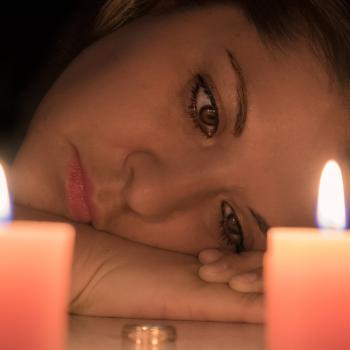"In Islamic terminology, homosexuality is alternatively called al-fahsha' (an obscene act). Islam teaches that believers should neither participate in nor support homosexuality," wrote Sheikh Chokri Majouli of the Islamic Cultural Centre in London in response to questions via email. While most mainstream Muslim scholars would consider homosexuality deviant, it is the sexual act itself that the Quran condemns.
Before the Internet became widely available in Tehran, it was difficult to find out about alternative sexual orientations, said Hossein Alizadeh, an Iranian activist now with the U.S.-based International Gay and Lesbian Human Rights Commission. While he was in high school, authorities showed his class a film in which a gay truck driver protagonist turns out to be an Israeli pawn. A national newspaper ran a series of articles on American gay mass murderer Jeffrey Dahmer.
"I was constantly exposed to homophobia. The vocabulary was not there to describe myself. You start developing self-hatred because you feel something is wrong with you," he said. As a result, he only came to terms with his sexuality when he was twenty-five and at university.
The Growth of Muslim Gay Rights Groups
Despite the hostility toward homosexuality in most of the Middle East and parts of Africa, the Internet has provided a space for a nascent movement of LGBT organizations to meet online and disseminate information, say activists. Gay pride marches are regularly held in Beirut and Istanbul.
Groups like SPoD in Turkey, Meem in Lebanon, Bedayaa in Egypt and Sudan, and others that are still underground have formed in recent years. Georges Azzi, co-founder of the Lebanese group Helem, says that a relatively free media there has led to a growing awareness of gay issues. He says it's part of a trend that emerged after the Arab Spring and is bound to a wider discussion about democracy, human rights, and debates about women's roles in these societies.
Ridwan, a Malaysian student, said he considered leaving Islam after learning he was gay. But he later re-embraced his religion after reading the Quran more carefully. "The Quran talks about diversity and equality. What [theologians] say doesn't have an effect on my private belief [because] it's not in keeping with the spirit of Islam. These teachings have been abused and politicized, especially by state-appointed Imams," he said.
Scott Kugle is a prominent U.S.-based scholar who has written about LGBT issues in Muslim communities. "We live in an age where the Internet has opened access to information. And this is linked to much larger questions of authority," he says. His book, Homosexuality in Islam: Critical Reflection on Gay, Lesbian and Transgender Muslims, looks at Muslim law and scripture to argue that purists have taken too narrow a look at the Quran. He says the texts allow for a more nuanced reading, and that the conservative view is based on a literalist interpretation that is outdated and patriarchal.
Some liberal Muslims have welcomed Kugle's book, saying it contains strong arguments for allowing gay Muslims to reconcile their sexuality and their faith. Kugle, a gay convert to Islam, has welcomed the greater debate between liberals and conservatives, and says the reluctance among some scholars to discuss controversial topics is a betrayal of Islamic tradition, in which all topics, even sex, were thrashed out.
Iranian activist Alizadeh says, "Religious conservatives are not willing to revisit ideological doctrine. But when (there's) enough push from society the debate has to start." That dialogue now appears to be happening at a grass roots level. But the agenda of LGBT activists in Muslim countries is different to those of their Western counterparts.
One reason these groups are not as vocal is that their countries don't give minorities the same legal protections and democratic freedoms that exist in the West. And some gay Muslims just want to stay in the closet, and not be persecuted for their orientation, says Pang Khee Teik, founder of a Malaysian alternative sexuality festival, Seksualiti Merdeka.
An unnamed poster on Alwaan, an Arab network for lesbians writes: "I am a Saudi Arabian and yes I'm gay. We want Arabic societies to accept us…. We don't call for licentiousness, we just call to be understood and to be accepted by the Arabian Governments and societies. We just want to live our lives in honesty, peace, and no fear! What is my crime?? Is it because I am (ME), if is it so, then am sorry for being (ME)."
Lim Li Min is a journalist based in Malaysia. Her articles have appeared in The New York Times, Foreign Policy Magazine, and Al Jazeera English.




